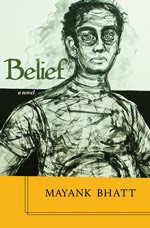Sunday, June 28, 2015
In Defence of a Liberal Education
In his treatise In Defense of a Liberal Education,
journalist and political commentator Fareed Zakaria makes a fervent appeal to
recognize the significance of humanities and the arts to the development and
sustenance of our global society.
He says, “Technical skills by
themselves are a wonderful manifestation of human ingenuity. But they don’t
have to be praised at the expense of humanities, as they often are today.
Engineering is not better than art history. Society needs both, often in
combination.”
At a time when technology has
come to dominate the discourse in all spheres of human endeavour, and
especially education, Zakaria’s impassioned plea may seem antediluvian, if not irrelevant.
His argument is compelling, but
it’s unlikely that it’d amount to anything more than a great read, and a reaffirmation
of the values that are important to people like me. This is because education
is linked to jobs, and jobs in the 21st century will require advanced
technological skills.
As a father of an 18-year-old,
I’m apprehensive when my son decides that he’d rather try to be a broadcaster
than become an engineer. This fear stems from a concern that it’d be a waste of
resources to acquire an education that may not guarantee a stable, long-term
career. I’m sure this apprehension, is shared by parents everywhere.
And Zakaria, too, accurately
captures the cause of this apprehension:
“A good college degree has
become more crucial in everyone’s mind. The post-industrial economy rewards
people who have academic training and credentials, or “knowledge workers,” even
more so than before. College sports have become more popular and more
profitable for the schools. But they face one trend that seems utterly
unsustainable: the rising cost of college. The average college tuition has
increased at an eye-popping pace – over 1,200 percent since 1978, the first
year complete records were kept. That is four times the pace of the consumer
price index and twice as fast as medical costs. This extraordinary cost spiral,
in an age when the prices of almost all goods and services have declined, is
surely one of the most striking phenomena in modern American life, and it has
largely been accepted without much controversy.
“That rise in cost is at
the heart of many of the concerns about the value of a liberal education. After
all when one is questioning whether a product is “worth it” – be it an outfit,
a car, or an education – crucial to that determination is its price. A liberal
education was affordable to a middle-class family in 1965. It is much less so
today. That means families have to make trade-offs between spending money on an
education and earmarking it for other things. It’s often noted that the data
show that a college degree improves one’s lifetime earnings, so that even a
large investment in a college education is worth it. That may be true, but it
also explains why families so anxious about this onerous price tag worry
endlessly that their son or daughter could jeopardize everything by majoring in
the “wrong” subject or getting a less marketable degree. The fact that we now
use the language of ‘return on investment’ to describe the experience of
getting educated is revealing.”
The book is focused on the
educational system in the United States of America, but it has a broad
historical and geographical sweep that takes into account global developments
in the sector.
Zakaria is a great polemicist, he marshals facts to suit his arguments, and cleverly juxtaposes facts and
opinions. To his credit, he doesn’t hide or camouflage his bias. For instance,
at one point, he says, “For me, the central value of a liberal education is
that it teaches you how to write, and writing makes you think. Whatever you do
in life, the ability to write clearly, cleanly, and reasonably quickly will
prove to be an invaluable skill.”
I wouldn’t expect a writer – and he’s
extremely gifted – to say anything different.
I wish my son reads this book.
Subscribe to:
Post Comments (Atom)





No comments:
Post a Comment